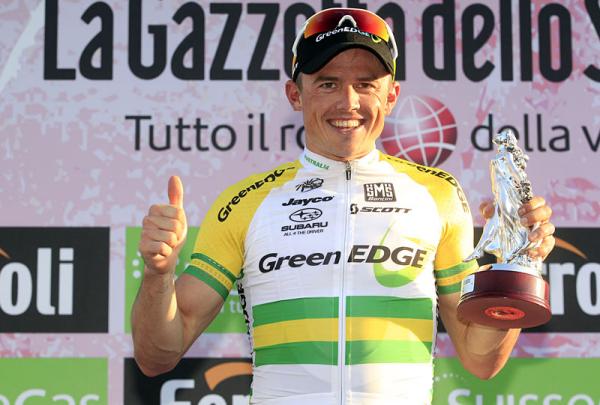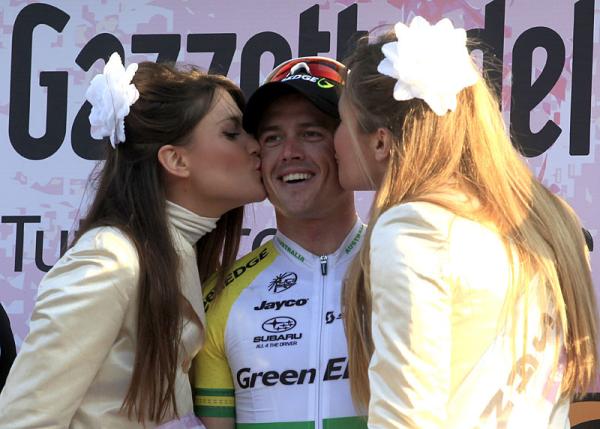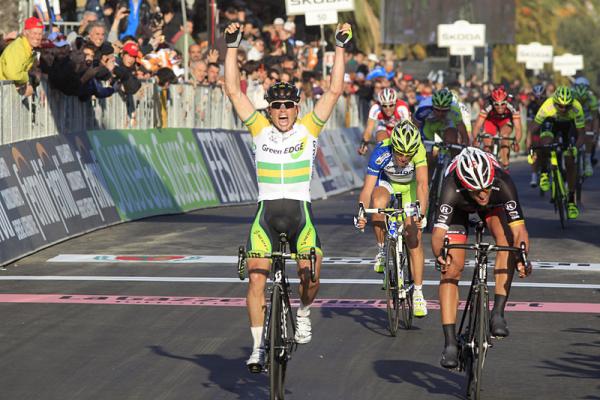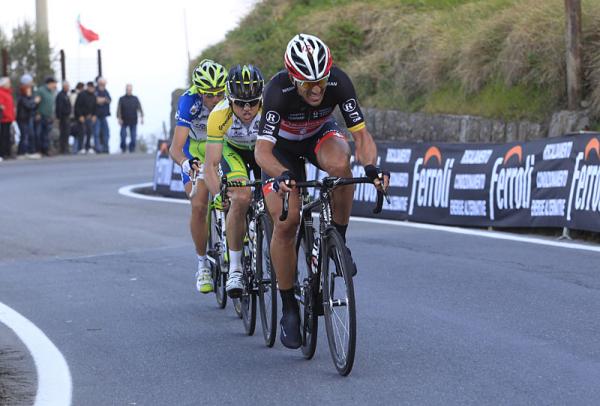Gerrans: I can’t deny Cancellara was the strongest
Australian holds his nerve to win Milan-San Remo




It takes the head and the legs to win bike races, and never was the old adage more pertinent than on the Lungomare Italo Calvino on Saturday afternoon, as Simon Gerrans (GreenEdge) zipped past Fabian Cancellara (RadioShack-Nissan) to win Milan-San Remo.
It was Vincenzo Nibali (Liquigas-Cannondale) who sparked the winning break with an attack on the Poggio, but it was Cancellara who grabbed a firm hold of the reins on the descent, and his efforts on the sinuous plunge down into San Remo ensured that the trio stayed just clear of the chasers to divide the spoils among them.
But in an echo of last spring’s monuments, while Cancellara’s show of force produced plenty of shock and awe, the winner’s bouquet went to the rider who best engaged his grey matter in the finale.
Gerrans took two turns on the front. The first, before the top of the Poggio, added momentum to Nibali’s attack. The second, in the streets of San Remo, seemed merely a token effort to appease Cancellara’s signal for help.
“Without question Fabian was the strongest, I can’t deny him that. He was going like a motorbike,” Gerrans admitted in the post-race press conference. “Really, he followed Nibali and myself on the Poggio and then he drove it across the top. He’s one of the best descenders in the peloton and he drove it down the descent. I was losing the wheel coming out of the corners each time.”
Last year, Cancellara famously warned his classics rivals that they would have to fasten their seatbelts such was the ferocity of his attacking. Gerrans and Nibali duly buckled up as the road flattened out over the top of the Poggio, but the Australian already had designs on nudging Cancellara out of the driving seat at the last.
“He was really committed to driving the break to the finish line. I was able to give him one short turn with a little over a kilometre to go and then he came past me again like a motorbike,” Gerrans said. “I was confident the break was going to go but to the finish and I knew what I had to do to finish the hard work off and just come past him in the final.”
Get The Leadout Newsletter
The latest race content, interviews, features, reviews and expert buying guides, direct to your inbox!
A stolen win?
One journalist wondered aloud if Gerrans had stolen Cancellara’s victory, but the frenetic finale of a La Classicissima was hardly the place to ponder such moral dilemmas. In any case, with teammate and defending champion Matt Goss sitting in the chase group behind, Gerrans had a strong alibi, as did Nibali, whose teammate Sagan won the sprint for fourth.
“That was my role in the team. We had the defending champion in Matt Goss and if it came back for a sprint, Goss was going to be the main guy. My position was to follow the breakaways,” Gerrans said. “Obviously I wasn’t as strong as Fabian, I’d be the first to admit that. But it’s not always the strongest guy who wins the race. You have to play a little smart and be there.”
Gerrans explained that he and Goss had scarcely spoken during the race, but such was the simplicity of the GreenEdge tactic that there was no need. While Goss kept his powder dry behind, Gerrans was assigned to follow the moves on the Cipressa and Poggio.
“I was quite surprised because we didn’t race the Cipressa or the beginning of the Poggio at a fast pace. So I thought there was a good chance the group would come back together if there were attacks. I was surprised we were able to go to the finish line, but that was courtesy of Fabian.”
Gerrans may not be the most prolific of winners, but there is little argument about the quality of a palmares that includes stage victories in each of the three grand tours.
“I’m pretty good at analysing the situation and making the most of what I have,” Gerrans said by way of explanation. “I know I’m not the biggest engine in the peloton, but I have some all round abilities and every now and then I get to race for the win and I try and make the most of that situation.”
And what of Cancellara? Did the Swiss locomotive overestimate its own capacity?
“He was very much racing for the victory, but maybe he underestimated me a bit in the final,” Gerrans said. “By driving and doing so much work on the front of the group, he was committed to get the break to the final but he also thought he had enough to get the win.”

Barry Ryan was Head of Features at Cyclingnews. He has covered professional cycling since 2010, reporting from the Tour de France, Giro d’Italia and events from Argentina to Japan. His writing has appeared in The Independent, Procycling and Cycling Plus. He is the author of The Ascent: Sean Kelly, Stephen Roche and the Rise of Irish Cycling’s Golden Generation, published by Gill Books.